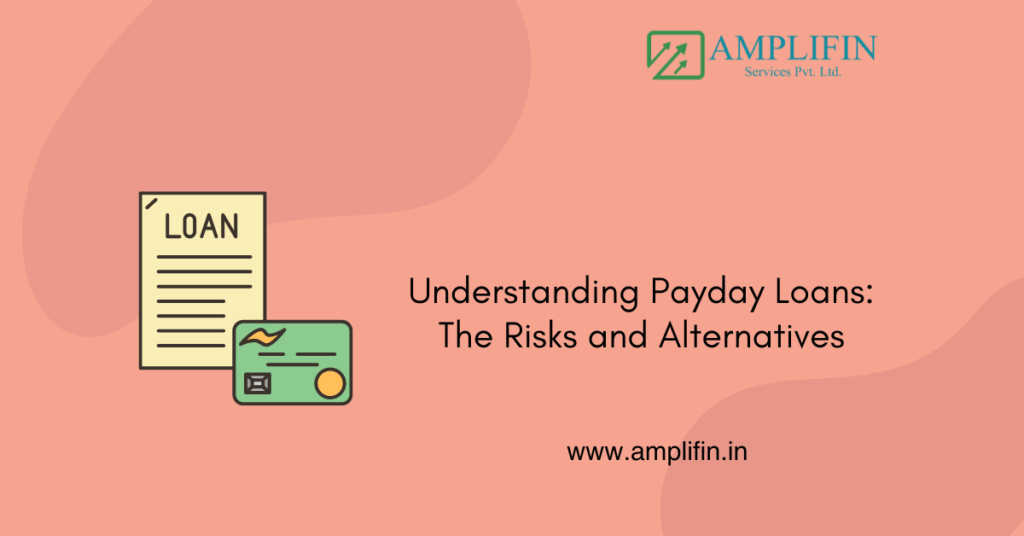Understanding Payday Loans: How They Work and What to Know Before You Borrow
In the modern world of finance, payday loans have become a go-to solution for those in need of quick cash. However, while they might seem like a convenient option in an emergency, payday loans come with serious consequences if not carefully managed. If you’re considering a payday loan, it’s essential to fully understand how these loans work, their advantages and disadvantages, and the potential alternatives that could be a better fit for your financial situation.
This article aims to walk you through everything you need to know about payday loans, from understanding how they work, to exploring the risks and alternatives. If you’ve ever wondered about payday loans or are looking for guidance on whether they’re a viable option for you, this blog is a must-read!

Article Outline About Understanding Payday Loans
- What is a Payday Loan?
- Explanation of payday loan basics.
- The terms associated with payday loans.
- Why payday loans work the way they do.
- How Do Payday Loans Work?
- A step-by-step breakdown of payday loan mechanics.
- Common loan terms and conditions.
- Key factors affecting payday loans.
- The Advantages of Payday Loans
- Quick access to cash.
- No credit check for approval.
- How payday loans provide immediate relief.
- The Disadvantages of Payday Loans
- High interest rates.
- Short repayment terms and fees.
- The cycle of debt and potential for financial instability.
- Why Some Borrowers Choose Payday Loans
- The immediate need for cash.
- Accessibility for borrowers with poor credit.
- How payday lenders market to vulnerable customers.
- The Risks of Payday Loans
- The danger of falling into payday loan debt.
- How missed payments affect your credit score.
- The long-term financial strain caused by payday loan cycles.
- Alternative Lending Options to Consider
- Personal loans as a safer alternative.
- Credit unions and payday loan alternatives.
- Borrowing from friends or family.
- Understanding Payday Loan Fees and Interest Rates
- How payday loan fees are calculated.
- Comparison of payday loan interest rates with other loan types.
- Why payday loans are often more expensive than traditional loans.
- When Should You Use a Payday Loan?
- When payday loans might be useful.
- Tips for managing payday loan repayments.
- How to avoid getting trapped in the payday loan cycle.
- Legal Aspects of Payday Loans
- The legality of payday loans in different states.
- Regulations governing payday lenders.
- Consumer protections and where to file complaints.
1. What is a Payday Loan?
A payday loan is a short-term, high-interest loan designed to cover an immediate financial need until your next payday. Payday lenders offer these loans with the promise that the amount borrowed will be repaid quickly, typically in a week or two. The amount borrowed is often based on the borrower’s income and payday schedule, making it relatively easy for people with urgent financial needs to qualify.
However, payday loans often come with serious conditions. While payday loans work by providing quick access to cash, they typically have extremely high fees and interest rates compared to traditional personal loans. This means the total cost of borrowing can spiral out of control if you’re unable to repay the loan on time.
2. How Do Payday Loans Work?
When you decide to get a payday loan, you usually visit a payday lender or apply online. You provide proof of income, identification, and sometimes a post-dated check or access to your bank account. The payday lender typically lends you a small sum, which you agree to repay in full on your next payday. Payday lenders usually charge high interest rates and fees, and repayment is due on the date specified in the loan agreement.
The loan amount is generally small, but the fees can be significant. In some cases, payday loans cost as much as 400% APR, making them extremely expensive in the long run. Borrowers must repay the full loan by the agreed-upon date, or risk additional fees and interest accumulation.
3. The Advantages of Payday Loans
One of the primary benefits of payday loans is quick access to cash. When you’re facing an urgent financial need, such as unexpected medical bills or a car repair, a payday loan can be a fast solution. Additionally, payday loans often do not require a credit check, making them an attractive option for individuals with poor or no credit history.
Moreover, payday loans offer the convenience of online applications, which means you can apply from the comfort of your home and get access to funds in as little as one business day. For borrowers who need to pay towards any claim or cover immediate expenses, payday loans can seem like a viable option.
4. The Disadvantages of Payday Loans
While payday loans may seem appealing, they come with significant downsides. High costs and risks associated with payday loans make them a dangerous financial product for many borrowers. First, payday loans come with high interest rates, meaning that you will end up paying much more than you initially borrowed. If you fail to repay the loan on time, your lender may charge additional payday loans fees, or roll your debt over to the next pay cycle, escalating the total cost.
The short-term nature of payday loans also makes them harder to manage. If you’re unable to repay the loan on time, you may be forced to take out additional loans to cover your existing debt, which can trap you in a dangerous cycle of borrowing.
5. Why Some Borrowers Choose Payday Loans
Despite the risks, many people turn to payday loans due to urgent financial needs. For individuals with poor credit, or those unable to access other forms of credit, payday loans may appear as a quick and easy option. Payday lenders market their services aggressively to individuals who need immediate funds and may not be able to qualify for traditional personal loans.
Borrowers who need payday loans often face financial difficulties that prevent them from obtaining personal loans from banks or credit unions. For these individuals, payday loans provide an avenue for quick, though expensive, financial relief.
6. The Risks of Payday Loans
The risks associated with payday loans are substantial. If you fail to repay the loan on time, you could face exorbitant fees and escalating interest rates. Many payday borrowers find themselves taking out additional payday loans to cover the debt from the first loan, which leads to an unmanageable cycle of debt.
Defaulting on a payday loan can also negatively impact your credit score, making it harder to access more affordable forms of credit in the future. Additionally, payday loan borrowers often find themselves in a position where they owe more than they originally borrowed, a problem that can spiral out of control if not handled carefully.
7. Alternative Lending Options to Consider
While payday loans can provide immediate relief, there are payday loan alternatives that are typically more affordable and offer more favorable terms. Personal loans from banks, credit unions, or online lenders often have lower interest rates and longer repayment periods. If you’re unable to qualify for traditional personal loans, credit union loans or small personal loans may offer more flexible borrowing terms.
Other alternatives to payday loans include family loans, borrowing from friends, or using a credit card to cover short-term expenses. Depending on your situation, these options may come with lower costs and fewer risks.
8. Understanding Payday Loan Fees and Interest Rates
Payday loans often have high interest rates compared to other forms of credit. While traditional loans may charge interest rates of 10-30%, payday loan interest rates can soar to 400% or more. In addition to the interest, payday lenders typically charge fees for processing the loan, which further increases the cost of borrowing.
Before taking out a payday loan, it’s crucial to understand the cost of payday loans, as these fees can add up quickly. The payday loan fee is typically a percentage of the total amount borrowed, and the higher your loan amount, the more expensive it will be to repay.
9. When Should You Use a Payday Loan?
Payday loans might be appropriate in situations where you have no other means of borrowing and need cash urgently. However, it’s important to only use payday loans when absolutely necessary and to ensure that you can repay the loan on time. If you’re considering a payday loan, take the time to assess your financial situation, explore alternatives, and create a plan for repayment to avoid falling into debt.
10. Legal Aspects of Payday Loans
Payday loans are legal in most states, but they are heavily regulated. In some places, payday lenders are required to disclose the terms of the loan clearly, including fees and interest rates. However, payday loan laws vary by location, and some states have imposed payday loan restrictions to protect borrowers from abusive lending practices.
Before taking out a payday loan, it’s essential to check the laws in your state and understand your rights as a borrower. You may also want to consult with a financial advisor or explore consumer protections available in your area.
Conclusion: Key Takeaways
- Payday loans offer quick access to cash but come with high costs and risks.
- Repayment terms are typically short, and missing a payment can lead to escalating fees and debt.
- Consider alternatives to payday loans, such as personal loans, credit union loans, or borrowing from friends and family.
- Carefully weigh the advantages and disadvantages of payday loans before making a decision.
- Always ensure that you understand the fees, interest rates, and terms of payday loans before applying.
- If you decide to get a payday loan, have a plan in place to repay the loan on time and avoid falling into a cycle of debt.
By understanding the pros, cons, and alternatives, you can make more informed decisions when it comes to payday loans and other financial options.
